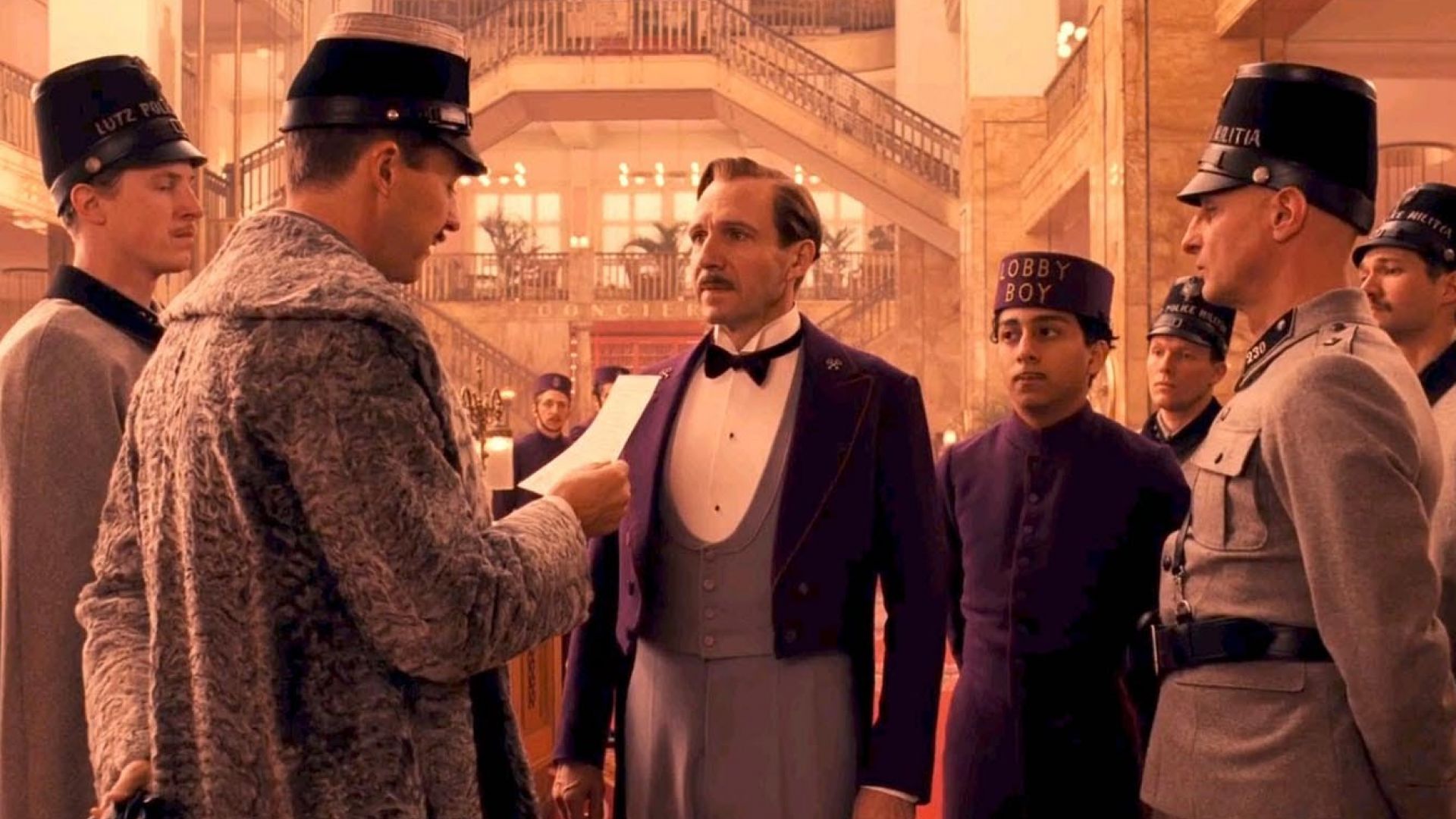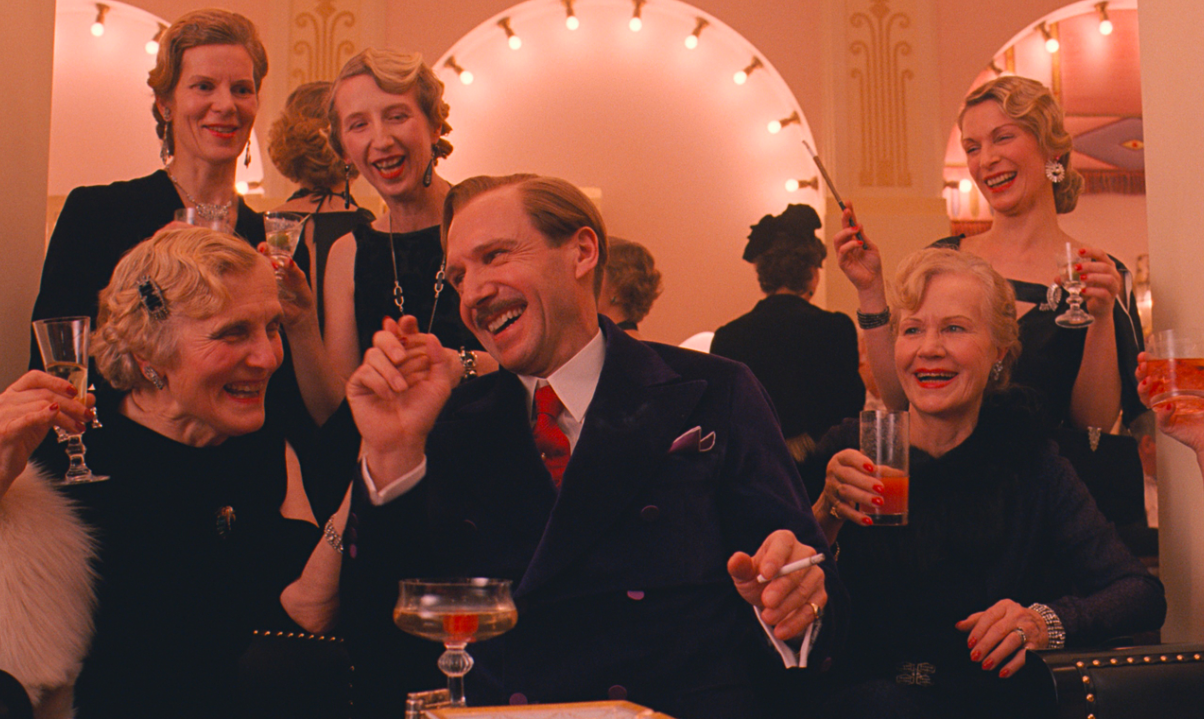In a few words, Wes Anderson’s eighth and most recent film, The Grand Budapest Hotel, is funny, beautiful, quick, clever, star-studded, and strange. It’s the same description easily applied to any of his previous works, and also the standard veil for a strong undertone of sadness Anderson places at the center of the film.
Following the story of Gustave H, head concierge at a lavish hotel located in a fictional 1930s central European country, Budapest builds outward from a potent idea presented by F. Murray Abraham’s older Zero Moustafa, who was taken under Gustave’s wing in the heyday of the hotel:
To be frank I think [Gustave’s] world had vanished long before he ever entered it, but he certainly sustained the illusion with a marvelous grace.
To anyone who’s played a couple rounds of Wes Anderson bingo in their day, this line bleeds vintage Anderson. Nostalgia, after all, is as present in his films as love interests clearly out of Nicholas Cage’s league are in all of the actor’s films. There’s always a sense of longing for what once was when it comes to a Wes Anderson work, whether it’s first love in Moonrise Kingdom or a formerly somewhat happy family in The Royal Tenenbaums.
With similar themes running through his movies, it’s no coincidence that Anderson carries the same stable of actors from story to story. Bill Murray is possibly the funniest sad man to ever live (or perhaps he’s the saddest funny man, which fits more is slightly unclear), and regulars like Jason Schwartzman and Owen Wilson aren’t far behind.
So with all this melancholy in mind, what is it that draws us to Anderson films, often to laugh, often to marvel at the cinematography, but mostly to feel a little warmth in the heart? How do we get pleasure out of content that is at its core incredibly sad?
The answer lies in the writer-director’s quick wit and mastery of the English language. It’s hard to allow the sadness of any one moment to sink in when as a viewer you’re whisked from line to line and scene to scene as quickly as Anderson’s fingers push you. For example, Moustafa has a terribly tragic background—“on one occasion,” as he puts it, “I was arrested and tortured by the rebel militia” in his home country. This, and a later line about the death of his family members, are both presented bluntly, and masked immediately by Ralph Fiennes’s fast delivery of the ensuing responses. “Right,” he retorts to Moustafa after the torture quip. “You know the drill, then.”
That this line and the film in general play dark moments for laughs would be entirely sadistic if not presented with Anderson’s trademark charm. No one is being trolled here—there are serious gloomy themes at play, especially for Fiennes’s Gustave. The guy eats meals alone in his shabby hotel room and seeks comfort by cycling through an endless carousel of blonde octogenarians. But when combined with rapid-fire dialogue and beautiful, animated sets, this gloom is elevated into a playful spectacle.
We appreciate this style because we can sense intense sadness, but the film doesn’t drown us in it. Even if depression is the defining characteristic of a character, and that’s certainly the case with many of the Andersonian variety, there’s no need to dwell in it. Instead, we’re presented with these negative feelings as a vehicle for providing true humor and fun.
In life, making light of a dark situation requires serious effort, which makes brooding about it a natural and easy alternative. So finding that light, then, is a true skill. Wes Anderson employs it better than most, and it’s exactly why we smile every time he tells us a sad story.


I agree. Great post.